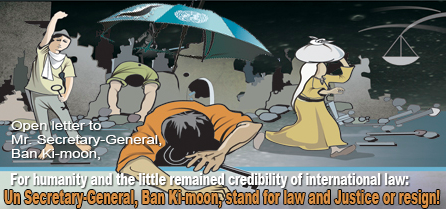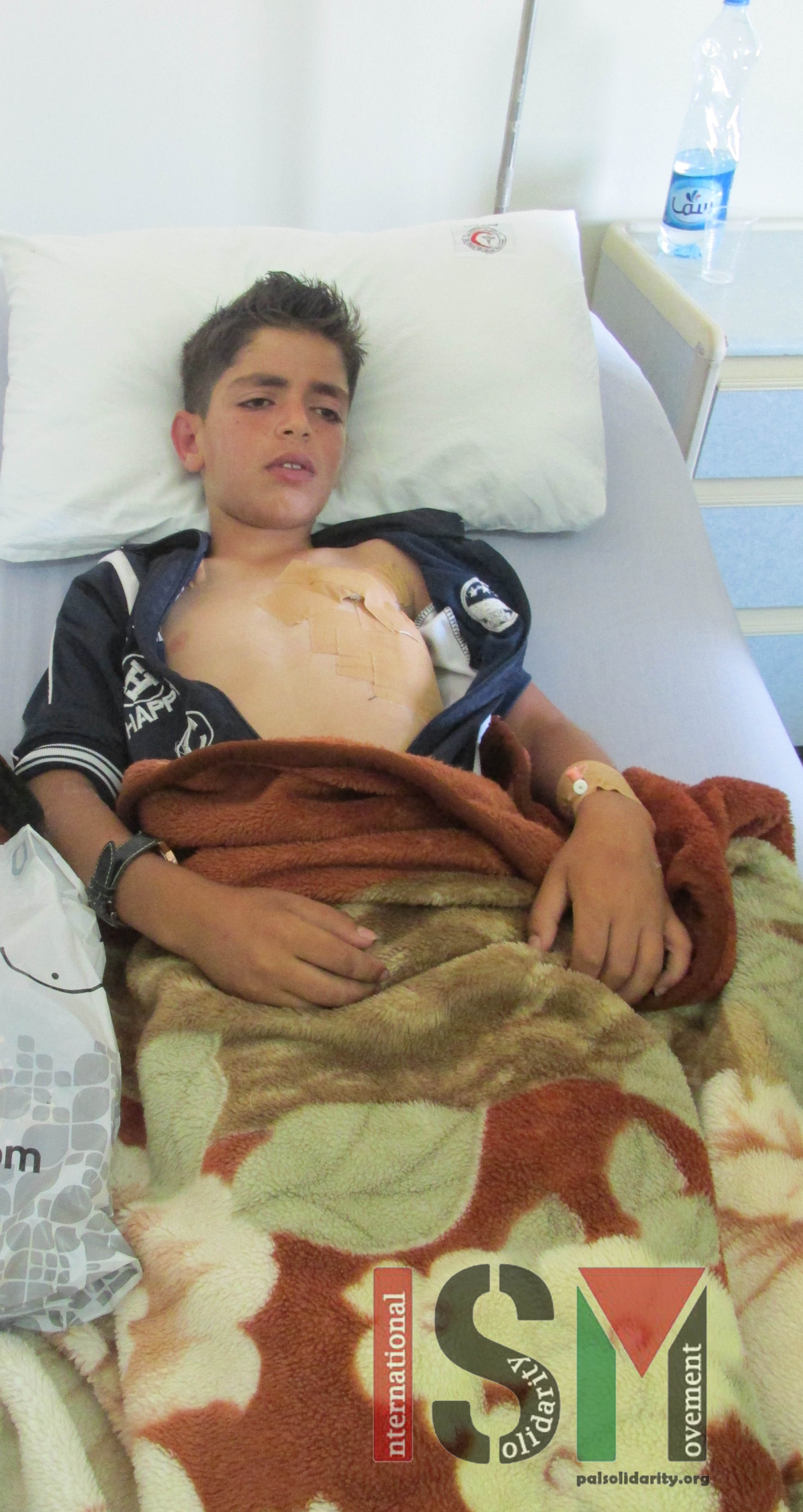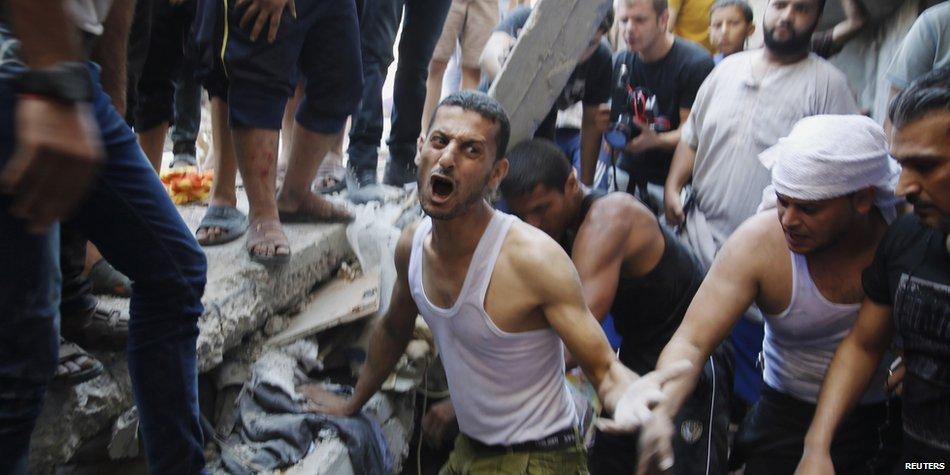Author: ISM Media
-
Un Secretary-General, Ban Ki-moon, stand for law and justice or resign!
7th August 2014 | Badil | Occupied Palestine For humanity and the little remained credibility of international law: Un Secretary-General, Ban Ki-moon, stand for law and justice or resign! Mr. Secretary-General Ban Ki-moon, We, the under signed Palestinian human rights and community-based organizations are extremely disappointed by your performance, notably by your biased statements, your failure to act, and…
-
10-year-old child shot in chest with live ammunition
6th August 2014 | International Solidarity Movement, Khalil team | Hebron, Occupied Palestine In al-Khalil (Hebron) on Sunday August 3rd, a 10-year-old Palestinian boy was walking to his home near the illegal settlement of Kiryat Arba when the Israeli military shot him in the chest with live ammunition. The following day, ISM volunteers went to visit the…
-
UPDATED: Gaza Calling: All out on Saturday 9 August Day of Rage
6th August 2014 | Call from Palestine | Gaza, Occupied Palestine Updated August 8th: Help us spread the call from Gaza for a Day of Rage on August 9th. Please help share the following translations via social media: Arabic, English, Danish, Dutch, French, German, Hebrew, Italian, Spanish, Swedish, and Turkish. Words alone do not do justice. Take the streets for Gaza! ******* Gaza Calling: All out on Saturday…



